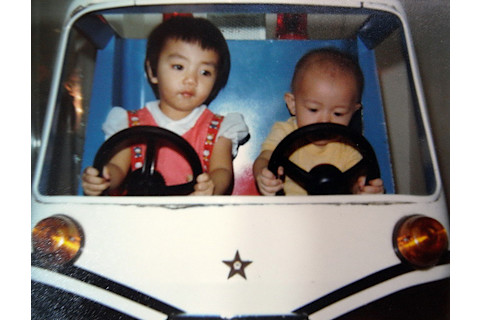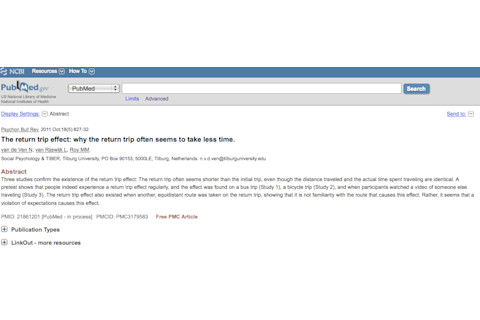
"Three studies confirm the existence of the return trip effect: The return trip often seems shorter than the initial trip, even though the distance traveled and the actual time spent traveling are identical. A pretest shows that people indeed experience a return trip effect regularly, and the effect was found on a bus trip (Study 1), a bicycle trip (Study 2), and when participants watched a video of someone else traveling (Study 3). The return trip effect also existed when another, equidistant route was taken on the return trip, showing that it is not familiarity with the route that causes this effect. Rather, it seems that a violation of expectations causes this effect."

Photo: flickr/kudumomo
Related content: Discoblog: NCBI ROFL: And the most boring study of the year award goes to… Discoblog: NCBI ROFL: Study proves driving like an old person is contagious. Discoblog: NCBI ROFL: College students’ perceived risk and anxiety after reading airplane crash news.













